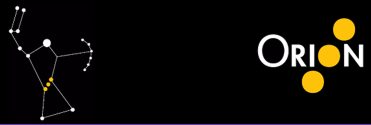| Language Tooling Enhancements in Orion 7 |
| Wednesday, 15 October 2014 | |||
|
Expected to be released in late October 2014, Orion 7 has improvements in its language tooling, especially for JavaScript development.
Orion is Eclipse’s web development tool, where all the elements are online. You work in your web browser where you have access to a sophisticated code editor, can link to a repository and create a site. One of the more important changes in the forthcoming release is improved content assist for JavaScript. You can now make use of proposals inside JSDoc-formatted comments; the object support has been improved from Orion’s indexes, and it has improved built-in type detection. The code editor will help you add JSDoc tags, and offer assistance for parameters and for type objects. The editor will also show the actual return type of items rather than simply ‘Object’, which is what happened in earlier releases. The editor can also now show assist for RegExp literals. ESLint support is another area that has been improved. The version has been updated to 0.7.2, and the developers of Orion have improved the overall integration support for ESLint, with new linting rules and some content assist templates and completions to help you create ESLint directives. There’s a new no-empty-block rule that can be used to detect empty code blocks. This is turned off by default, but if you turn it on then should your code contain an empty block, you get a pleasant warning in the editor, with a suggestion how to fix it. Another new rule, throw-error, is intended to make sure that you only throw error-objects from throw statements. If you fail to do so, you will see a reminder pointing out your mistake. In his blog post about the improvements to Orion 7.0, Mike Rennie says that: “with the change to stop using JSLint/JSHint directives and a linting rule in place to warn you about the unsupported usage, we thought it best to add some content assist completions to help you craft correct ESLint directives.” The new ESLint directive templates will help you set up an environment, and help in creating disabling and enabling rules. The parser has also been improved to help with content assist inside JSDoc blocks. The parser now has recovery support for unclosed or incomplete comment blocks encountered while parsing your source. The new block comment recovery support will parse and recover all complete statements up to the incomplete comment. Support was also improved to report parsing errors that cause a complete failure to parse, where no tokens at all are being returned from the parse. Occurrence support has undergone a lot of work, and can now show you occurrences of labelled statements, throw statements, and will mark occurrences in use-before-define and hoisting scenarios. The blog post says the team even fixed a long standing bug that refused to show occurrences for something that was not defined in the file. Finally, the support for HTML has been improved with the addition of an HTML outline, which is powered by the htmlparser third party library. In addition to the language tooling improvements, Orion 7.0 will have significant improvements to its authentication infrastructure and will now support OAuth 2.0 providers for authentication, in place of the OpenID and Mozilla Persona authentication methods. Stable builds of Orion 7.0 can be found on the Orion download page.
More InformationRelated ArticlesOrion web based IDE ready to test To be informed about new articles on I Programmer, install the I Programmer Toolbar, subscribe to the RSS feed, follow us on, Twitter, Facebook, Google+ or Linkedin, or sign up for our weekly newsletter.
Comments
or email your comment to: comments@i-programmer.info |
|||
| Last Updated ( Tuesday, 21 October 2014 ) |




